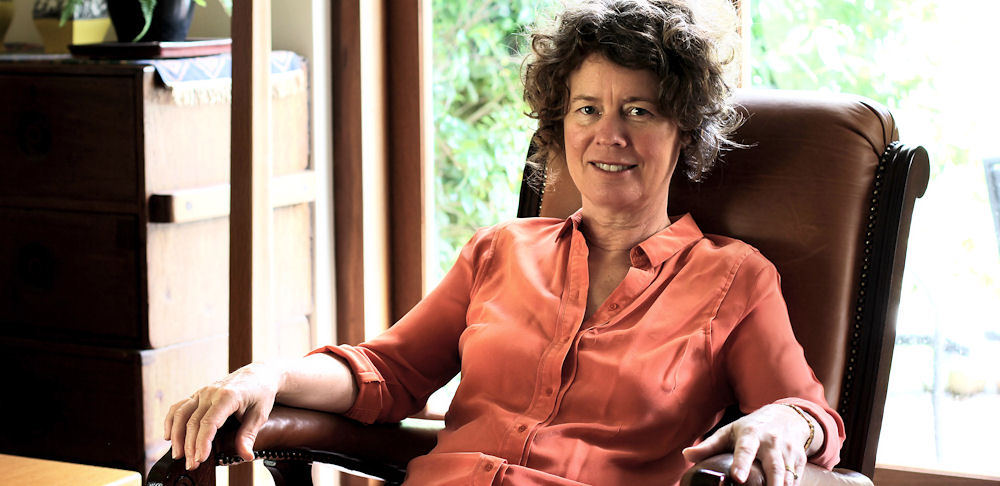Ms Fiona Halse
Psychotherapist, Counsellor
Fiona Halse Counselling & Psychotherapy 0414 191 541
White Gum Valley, Fremantle Perth WA 6162
Now Retired from private practice
As I am heading towards retirement I am no longer accepting new clients, because I cannot offer them long-term continuity. Yet I am still very happy to see existing clients and also returning clients wanting to resume sessions for a while. warm regards Fiona

A conversation with Fiona Halse
-
Since I was a teenager I have been interested in meditation, therapy and personal development, yet didn't think to work as a psychotherapist till I was nearly forty. I was attracted by the level of integrity and 'whole human beingness' required in this work and passionately wanted to learn how to do it well. I have since come to realise how much it is about being rather that doing. At that time I wanted to be what the work would require of me, and I still do.
In my journey I had met and been a client of many counsellors, then in the late 90's I had the fortune to experience some exceptional therapists practicing Hakomi Psychotherapy. The grace and seamlessness of change I experienced with this method inspired me to undertake a Hakomi Training. From there I took on the challenge of this precious work, hoping to help other people free themselves from unnecessary limitations and suffering. -
The principles underlying eastern religions, Buddhism in particular, have resonated deeply with me. The practices of meditation and compassion, which are seen as fundamental to spiritual development by many, have shown themselves to be well aligned to the practice and application of psychotherapy. I have found that mindfulness practice strengthens our awareness in ordinary life and - through this awareness - helps us dis-identify from the stories and emotions we tend to get caught in. Whether we call it self-awareness, witnessing, or mindfulness, I find it helps.
-
I am increasingly interested in things like acceptance and self-compassion. The lack of these traits obviously causes much unnecessary suffering. Our Western society and lifestyles do not foster them yet they can be developed; it helps to recognise where they are missing and how much we want them.
I am also at times curious about the transpersonal aspects of our lives. The big picture things like life journeys, meaning and purpose, and death. This can be seen as the spiritual aspect of our lives and, though we may not often reflect on it, I think counselling can provide a space to be with this. -
I find the way I work is quite influenced by the client in front of me as I do try to offer something that will make sense to the client and hopefully feel satisfying. I listen and try to help a client know more clearly what is going on in them. I am guided by the principles of Hakomi psychotherapy and at times use its techniques, such as inviting a client into mindfulness and noticing their present experience with them.
-
Hopefully there will be something satisfying about the process from the first session, yet clients are each unique with variable life circumstances and different amounts of work to do to gain wellbeing. Therapy can of course be unsettling. Generally as clients we want to feel happier and more confident and this can happen from one session or it can take a long time. Also, clients arrive at therapy with their own tendencies in how they perceive things, such as being optimistic or pessimistic, resilient or anxious. So these tendencies of perception can at times influence someone's sense of progress.
-
I'm in my sixties now and find it difficult, looking back at the big changes, to separate out the influences of therapy from life's influences. Yet looking back, what I know has been truly healing is to have had several wonderful therapists who have seen me, recognised me, and welcomed me with their loving presence and acceptance. Through therapy I have learnt to love myself better and to be more loving. Also the safe environment created by therapy has enabled me to explore and transform some painful places that I otherwise wouldn't have gone to, particularly places connected to shame. Therapy groups have been powerful in opening me up to the human sufferings we all share.
-
I think it is a blessing of a profession in that it requires me to be present, attentive and compassionate, and that is a good state to spend my time in. Yet I guess the most rewarding moments are when, through the grace of therapy, a client is able to be with some part of them in a new way and a gentle yet powerful transformation unfolds.
-
Of course I have days when I get lost in my old stories and anxiety or other versions of suffering get a grip on me. But my meditation practice helps and these patches tend to be shorter than they used to be. Sometimes I can catch myself tightening-up-against-what-is and remember to soften and open my heart a little. Then I can feel compassion towards myself and of course towards others.
-
I am deeply concerned about the level of environmental destruction humans have caused, including of course climate change. I am concerned that we don't even have a conversation about addressing our environmental footprint through addressing the human population explosion.
-
My main inspirations in life have been spiritual ones, including masters and teachers I have had the blessing of being in the presence of including Osho, Papaji, and since 2015, an Australian enlightened teacher, Linda Clair.
Currently I am re-reading When Things Fall Apart by Pema Chodron, an American Buddhist nun and student of Chogyam Trungpa. Yet I also enjoy reading P.G. Wodehouse for a bit of emotional uplift and relief.

